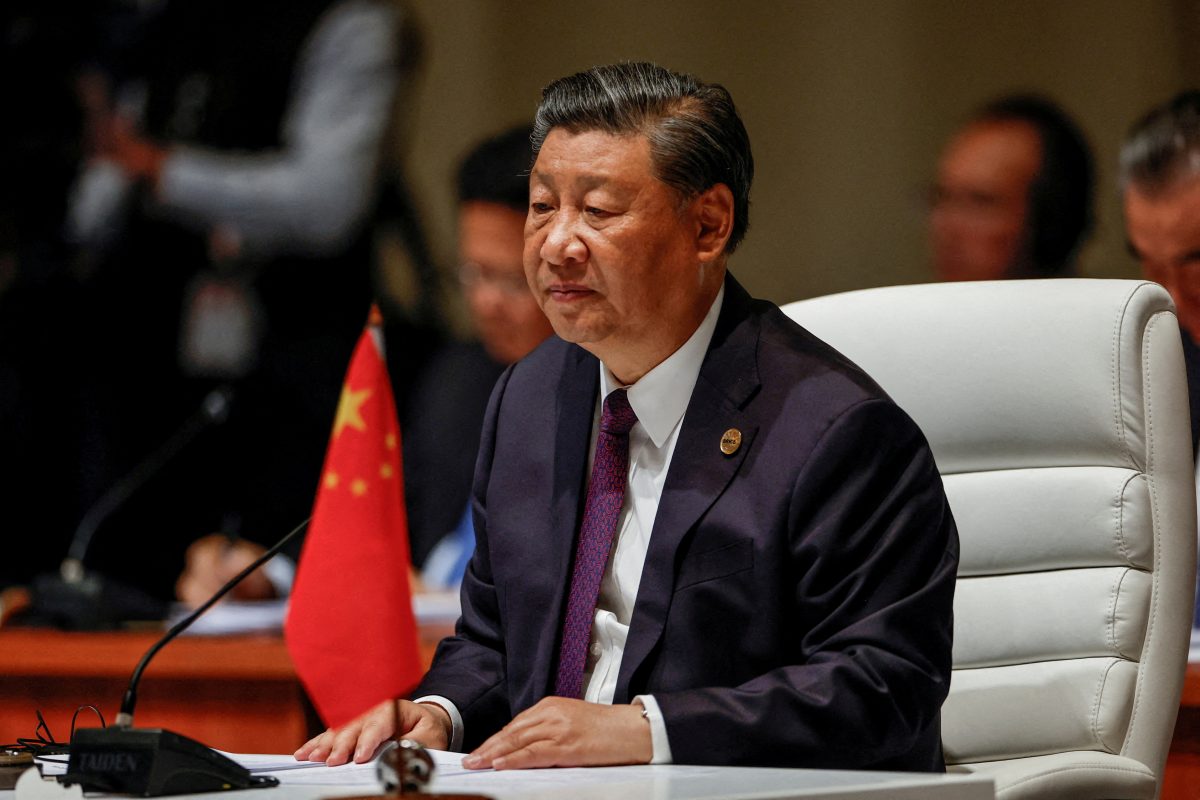BEIJING, (Reuters) – For several foreign diplomats based in China, the news that President Xi Jinping will not attend the G20 summit in India this week has confirmed a worrying trend: Beijing is shutting off to the West and its allies.
More than 10 envoys from these countries stationed in China detailed to Reuters the increasing difficulty they face getting access to Chinese officials and other sources of information on the world’s second-largest economy.
The envoys, who requested anonymity due to the sensitivity of the matter, said this trend had become pronounced in 2023 even as China had dropped rigid pandemic controls that had stymied diplomatic activities for three years.
China’s foreign ministry did not respond to a request for comment.
Ryan Neelam, a foreign policy analysts who previously served as an Australian diplomat based in Hong Kong, said such a development emphasises that under Xi’s strict regime, officials have become more wary about engaging with foreign powers.
“That has trickle-down effects through the system where lower-level officials, bureaucrats and diplomats are less willing to go off script,” said Neelam, director of public opinion and foreign policy at Lowy Institute.
“If everything becomes stage-managed and there’s less opportunity to have informal interactions, if you get less access to senior decision makers across the system, then there’s going to be a narrowing of the opportunity to find points of commonality or areas of compromise.”
Relations between China and the West have nosedived in recent years over issues ranging from Beijing’s reluctance to condemn ally Russia over its Ukraine invasion to tensions over sensitive technologies and Taiwan, the democratic, self-ruled island Beijing claims as its own.
China has not explained why Xi, who has participated in every G20 summit since he came to office more than a decade ago, is not leading Beijing’s delegation to New Delhi for the Sept. 9-10 meeting. It has said only that Premier Li Qiang will represent China.
China has testy relations with host India, which analysts say may be a factor, but more broadly Xi’s international travel has significantly dropped off this year and has been limited to countries Beijing views as friendly.
He has only left China twice – to visit Russian President Vladimir Putin in Moscow and to attend a meeting of major BRICS emerging economies in South Africa last month, where he also missed a keynote address without explanation.
SCRIPTED COMMENTS
By comparison, Xi managed five overseas visits in 2022 – when the country’s borders were effectively shut due to rigid pandemic controls – and a dozen in 2019 before COVID struck.
Some Western leaders like French President Emmanuel Macron and U.S. Secretary of State Antony Blinken have travelled to China to hold talks with Xi this year.
But for several Western envoys in Beijing, regular access to Chinese officials or even scholars from state-linked think tanks – which play a key role in explaining China’s policies to the world – has dropped off compared to before the pandemic, they said.
Scheduling visits for travelling dignitaries, as well as establishing protocols and ensuring media access, is also getting harder, several diplomats said.
When meetings are arranged, Chinese officials stick rigidly to scripted comments, the diplomats said, while some added they experienced hostile behaviour from nationalistic academics. This has curtailed the quality of information envoys can feed back to their capitals, they said.
Reuters reported in July on how some diplomats say they are also facing heightened scrutiny and interference from Chinese authorities.
However, envoys from two countries which enjoy close relations with China said they had experienced no such problems.
Yun Sun, director of the China Program at the Stimson Center, a Washington D.C.-based think tank, said curtailing access or not attending events is increasingly used by China as “leverage” against countries with whom it has disagreements.
“Engagement is seen and used by China as a leverage to shape other countries’ behaviours,” Sun said, adding that she had also heard that the lack of access and security restrictions for Western diplomats in China had “intensified”.
And with China ramping up a sweeping national security drive, aimed in part at rooting out foreign spies, there is little sign of this trend letting up any time soon, analysts say.
“When the anti-West sentiment is on the rise within the Chinese bureaucracy, frequent contact or close working relationships with Western officials may raise questions about one’s political trustworthiness,” said Tong Zhao, senior fellow at the U.S. based Carnegie Endowment for International Peace.
“To Chinese officials, the benefits of such engagements have become less evident, while the political and security risks are growing.”





